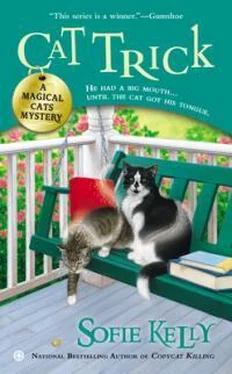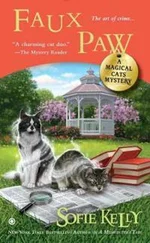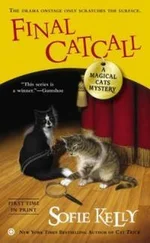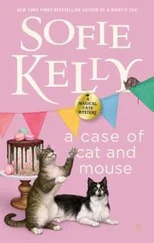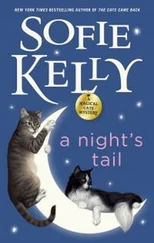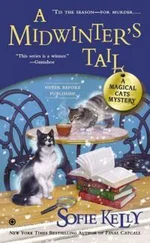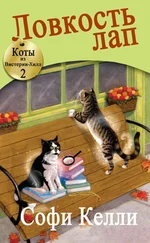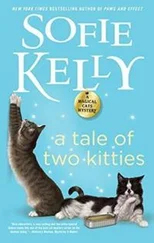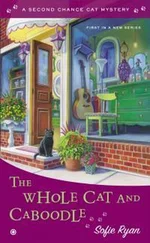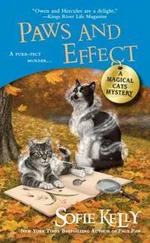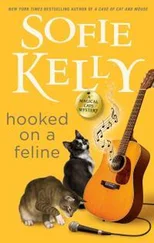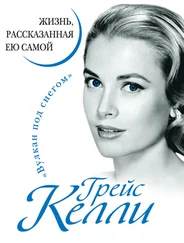“Well, Mary did offer to teach me a few things,” I said.
“What kind of things?” Roma asked, her voice edged with suspicion.
I did a little shimmy in my seat and copied Mary’s tugging-off-the-glove motion.
Roma covered her eyes. “Way more information than I need,” she said.
“Did you say yes?” Maggie asked, a teasing gleam in her eyes.
My cheeks were burning. “No, I didn’t,” I said. “Time to change the subject.”
“Kathleen, have you decided what you’re going to tell Everett?” Roma asked, pushing back her empty plate.
I dipped a potato wedge in the last bit of sauce on my plate. “There’s a lot to think about,” I hedged. “I like Mayville Heights, and I can’t imagine not sitting here with the two of you, or going to tai chi, or being at Eric’s for lunch.”
“So stay,” Maggie said quietly.
“I miss my family,” I said. “I didn’t realize how much until I went back to Boston to see them. They drive me crazy, but I do love them. And my life was in Boston for a long time. I have connections and people I care about there, too.”
Roma tipped her head to one side and smiled. “Do what feels right, what makes you happy. We’ll be friends no matter what you choose.”
Maggie stuck out her fork into the middle of the table.
“If you’re still hungry, there’s more in the pot,” I said.
She made a face. “No. We’re the Three Musketeers. You know, all for one, one for all.”
“I thought we were Charlie’s Angels,” I said.
“This isn’t going to end with you two hijacking my car, is it?” Roma asked.
“You’re both so awful at the symbolic moment,” Maggie said. She wiggled her fork. “C’mon. All for one.”
I looked at Roma. “She isn’t going to give in until we do this.” I picked up my fork and stretched across the table so it rested on Maggie’s fork.
Roma looked at the two of us and shook her head; then she picked up her own fork and leaned forward until the tines were resting on the other two. It would have been far more dramatic with fencing foils.
“All for one,” Maggie said with a grin.
“And one for all,” Roma and I joined in, laughing.
In that moment, whether or not I should stay seemed so simple.
16
Both Harry Taylors—Senior and Junior—came into the library Saturday morning just after we opened.
I put my arm around the older man’s shoulders and gave him a hug. “It’s so good to see you,” I said.
“It’s good to be seen,” he said. “I was getting so tired of being cooped up in the house. I figured I was going to have to use a soup spoon to tunnel my way out when my keepers were asleep.”
“You can see he’s feeling much better,” his son said dryly, heading over to the desk to give Mary three hardcover books and a couple of DVDs.
Harrison had just gotten over a second serious middle ear infection that had left him unsteady on his feet and caused at least one blackout that I knew of. He was using his cane, but he wasn’t relying on it quite as much as the last time I’d seen him.
“I’m not planning on being a customer of Dan Gunnerson anytime soon,” he said tartly.
“I’m very glad to hear it,” I said, smiling at him. Dan Gunnerson ran Gunnerson’s Funeral Home.
“I have a few more bulbs I want to put in,” Harry said. “Dad figured he’d come along and freeload a cup of coffee he shouldn’t really be drinking off of you.”
“First of all, if a cup of coffee once in a while was going to kill me, Gunnerson would have planted me—probably in some ridiculously overpriced box—years ago,” the old man said. “And second, Kathleen enjoys my company.” He winked at me. “I’m very charming.”
The younger Harry shook his head and headed for the door. “He’s all yours, Kathleen,” he said over his shoulder. “I won’t be long.”
I offered Harrison my arm. “Are you actually allowed to have a cup of coffee?” I asked.
“Depends on how you define ‘allowed,’” he said, as we made our way to the seating area overlooking the water, at the end of the double row of computer desks.
I narrowed my gaze. “Am I going to get in trouble if I get you one?”
He gave me a sly grin. “Not with me you won’t.” With his snowy beard and mischievous blue eyes, he looked like Santa Claus without the red suit. And he really was charming.
I got Harry settled in front of the high windows and then went upstairs and got him half a cup of coffee, partly because I knew he probably shouldn’t be drinking it and partly because having it downstairs, even away from all the books and the computers, was against library rules.
He took a long sip from the cup and sighed with pleasure. “Now, that’s a cup of coffee; a lot better than that decaf stuff the boys and Elizabeth are trying to get me to drink.” He balanced the stoneware mug on his knee and turned to look at me. There was a question in his deep blue eyes. I waited for him to ask it.
“So, what have you found out about the Glazer boy’s death?” he said.
I knew there was no point in trying to bluff him. He might have been old, but he was as sharp mentally as a man half his age.
“How did you know?” I asked, shifting sideways in my chair and crossing my legs.
He took another sip from his cup. “There’s nothing wrong with my hearing, and just because it looks like I’m asleep doesn’t necessarily mean that I am. So what do you know?”
“Not very much,” I said.
“It wasn’t an accident.” He wasn’t asking a question.
“What makes you say that?” I asked. Had he heard some bit of gossip I’d missed?
“Because if it was, Marcus Gordon would have said so by now.”
I nodded. “No, I don’t think it was an accident.”
Harrison stroked his close-cropped beard. “You think it was someone in town or someone from away? I hear the boy was pretty much making an ass of himself. More than a couple of people had words with him.”
I slid my palms over the armrests of my chair. “His two partners were at a fund-raiser in Minneapolis in front of a couple hundred witnesses. As for the people who had words with Mike Glazer, Liam Stone was helping someone who’d had a flat tire. That leaves me with Mary”—I dipped my head toward the circulation desk—“Burtis Chapman and the woman who’s the new baker over at Fern’s, who doesn’t look like she’s big enough to kill a grasshopper.”
He gave a snort of laughter. “Mary wouldn’t kill anybody. She might have left him singin’ soprano, but that’s about it.” He frowned in thought. “Baker over at Fern’s? Didn’t she do those fancy cupcake things for the reception after the music festival?”
I nodded. “That’s her. Her name’s Georgia.”
Harrison took a long pull from his coffee. He folded his hand around the mug. The skin on his hand was heavily lined, like a close-up of a street map. “She’s about the size of a piece of dandelion fluff. I can’t see her killing Glazer. Why would she want to? Because he didn’t like those little chocolate sprinkles?”
I put both feet on the floor and leaned forward. “Tell me about the Glazers. I know about the accident that killed Mike’s brother.”
He sighed and fingered his beard again. “That was a terrible thing. If anyone had predicted that one of the Glazer boys was going to end up dead the way he did, well, no one would have figured it to be Gavin. It tore that family apart. And now both boys are dead.” He shifted in his chair. “You know, Kathleen, when you have kids, you love them for different reasons. Hell, they’re different people. When I met Elizabeth for the first time—” He patted the left side of his chest. “It was as though a little part of myself that had been missing had been given back to me. But that didn’t mean I loved my other children one bit less.”
Читать дальше
